UNRWA-Job-Creation-Programme-beneficiary-working-on-a-strawberry-farm-in-northern-Gaza.-%C2%A9-2017-UNRWA-Photo-by-Tamer-Hamam..jpg" />
A UNRWA Job Creation Programme beneficiary working on a strawberry farm in northern Gaza. © 2017 UNRWA Photo by Tamer Hamam.
Jerusalem, MINA – The Gaza Strip is suffering from a humanitarian crisis, epitomized by cyclic violence and destruction, the chronic fuel and water crises and the glaring absence of any sustainable socio-economic improvements to the distressed economy, WAFA reported, citing the United Nations Relief and Works Agency for Palestine Refugees in the Near East (UNRWA).
Also Read: Israel Welcomes UNSC Gaza Resolution, Opposition Criticizes Deal
Entering its 11th year in June 2017, the United Nations has repeatedly highlighted the illegality of the blockade, which continues to hamper freedom of movement of people and goods, as a form of collective punishment and called for its full lifting, said UNRWA.
According to ‘Gaza situation report 202’, during June 2017, 7,227 truckloads entered Gaza. The volume of goods that entered this month was 29% below the monthly average recorded since the beginning of 2017, 35% below the monthly average in the first half of 2007 (before the blockade) and the lowest volume recorded since July 2015.
According to United Nations Office for the Coordination of Humanitarian Affairs (OCHA), in June 2017, 113 truckloads exited Gaza. The volume of truckloads that exited was 20% below the equivalent figure in June of 2016 and 88% below the monthly average in the first half of 2007, before the imposition of the blockade.
UNRWA pointed out that robust recovery of the agricultural sector in Gaza continues to be hindered by stringent quotas on the quantity and variety of produce allowed for export, severe restrictions on imports of relevant raw materials and goods classified by Israel as ‘dual use’-items, such as fertilizers, wood panels and steel pipes.
Also Read: Hamas Rejects International Forces in Gaza
It noted that the vast majority of exports consist of agricultural produce. Yet robust recovery of the agricultural sector in Gaza continues to be hindered by stringent quotas on the quantity and variety of produce allowed for export, severe restrictions on imports of relevant raw materials and goods classified by Israel as ‘dual use’-items, such as fertilizers, wood panels and steel pipes.
In addition, any produce allowed to exit Gaza faces long delays due to prolonged inspections at the only crossing for goods currently in operation, Kerem Shalom, leading to a decrease in quality and freshness or even to spoilage.
UNRWA said inside Gaza access restrictions for Palestinian farmers to their agricultural land located near the perimeter fence with Israel – the so-called Access Restricted Areas – bar farmers from adequately tending to their land. (T/RS5/RS1)
Mi’raj Islamic News Agency (MINA)
Also Read: UN Says Israel Blocking Vital Tent Deliveries to Gaza





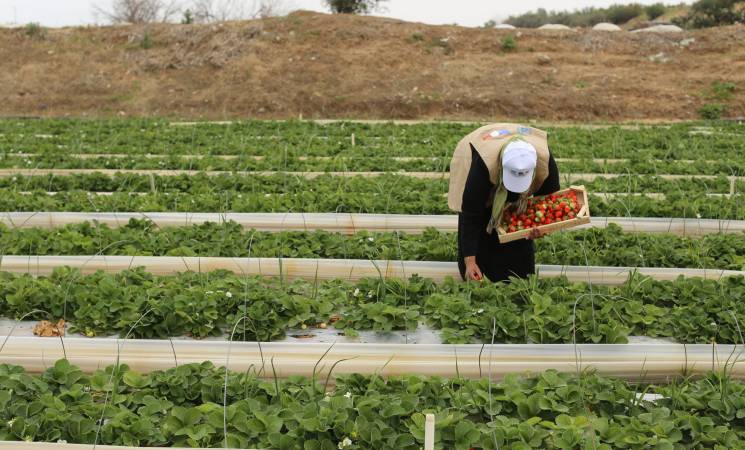



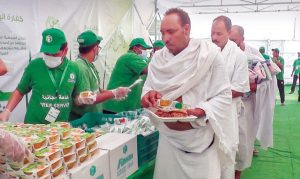

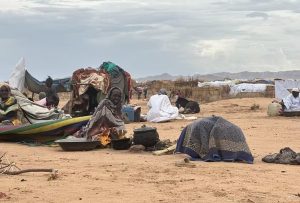
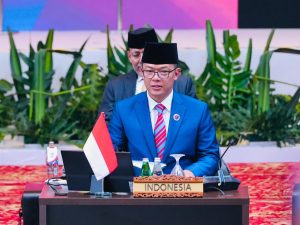


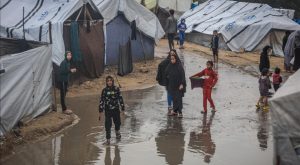

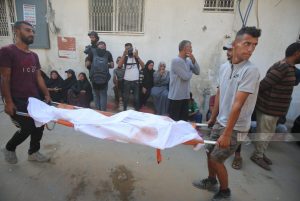
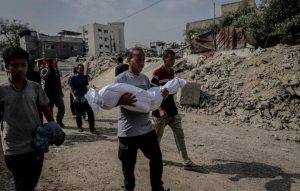















 Mina Indonesia
Mina Indonesia Mina Arabic
Mina Arabic